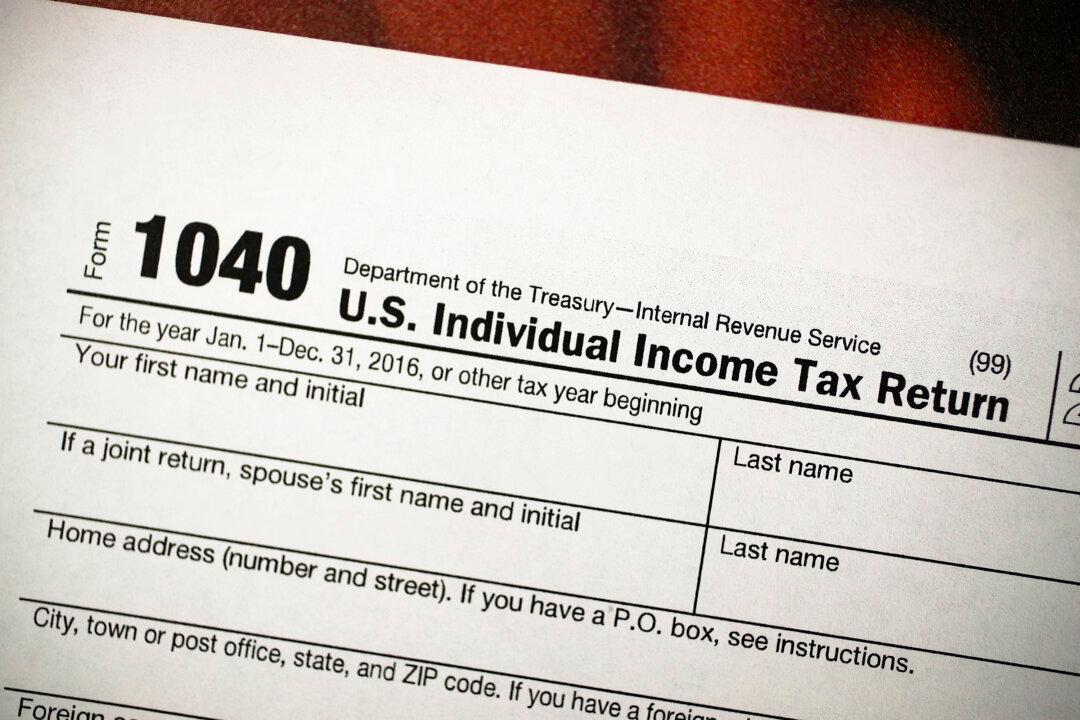Inflation-hit Americans who filed their taxes early have received, on average, smaller tax refunds this year, according to data published by the IRS.
The average tax refund issued by Feb. 2 averaged $1,395, a significant decline of $568—or a drop of 29 percent—from the same time last year, the data show. So far, 2.6 million tax refunds have been issued, worth about $3.65 billion.





